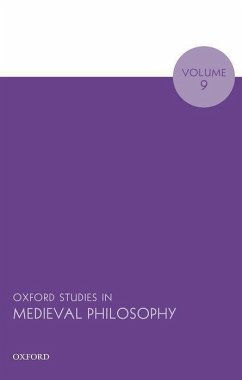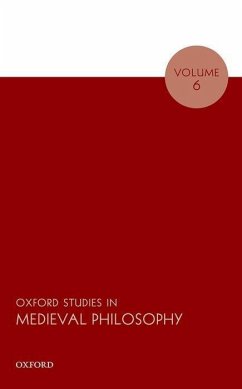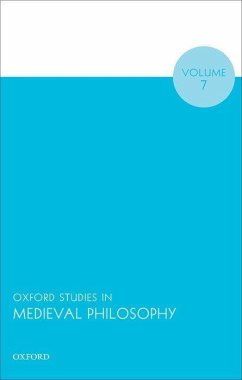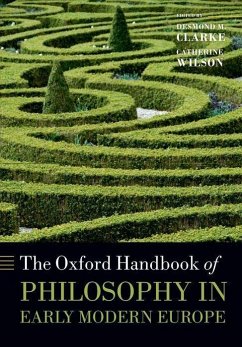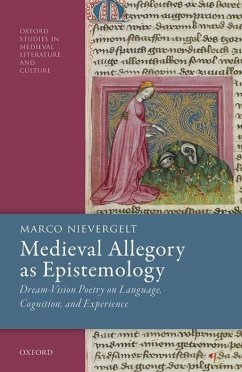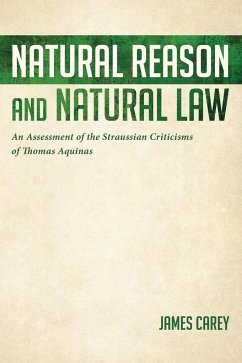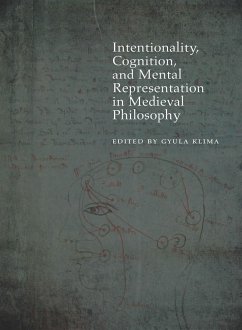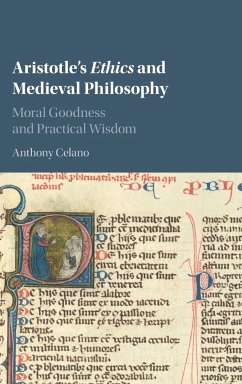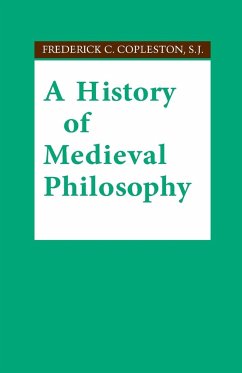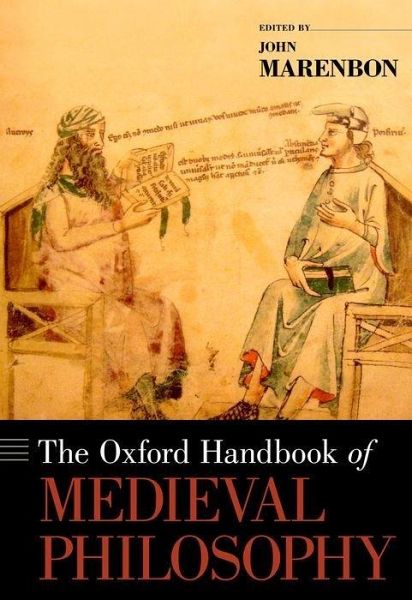
Oxford Handbook of Medieval Philosophy
Versandkostenfrei!
Versandfertig in 1-2 Wochen
211,99 €
inkl. MwSt.

PAYBACK Punkte
106 °P sammeln!
This Handbook is intended to show the links between the philosophy written in the Middle Ages and that being done today. Essays by over twenty medieval specialists, who are also familiar with contemporary discussions, explore areas in logic and philosophy of language, metaphysics, epistemology, moral psychology ethics, aesthetics, political philosophy and philosophy of religion. Each topic has been chosen because it is of present philosophical interest,but a more or less similar set of questions was also discussed in the Middle Ages. No party-line has been set about the extent of the similarit...
This Handbook is intended to show the links between the philosophy written in the Middle Ages and that being done today. Essays by over twenty medieval specialists, who are also familiar with contemporary discussions, explore areas in logic and philosophy of language, metaphysics, epistemology, moral psychology ethics, aesthetics, political philosophy and philosophy of religion. Each topic has been chosen because it is of present philosophical interest,
but a more or less similar set of questions was also discussed in the Middle Ages. No party-line has been set about the extent of the similarity. Some writers (e.g. Panaccio on Universals; Cesalli on States of Affairs) argue that there are the closest continuities. Others (e.g. Thom on Logical Form; Pink on
Freedom of the Will) stress the differences. All, however, share the aim of providing new analyses of medieval texts and of writing in a manner that is clear and comprehensible to philosophers who are not medieval specialists.
The Handbook begins with eleven chapters looking at the history of medieval philosophy period by period, and region by region. They constitute the fullest, most wide-ranging and up-to-date chronological survey of medieval philosophy available. All four traditions - Greek, Latin, Islamic and Jewish (in Arabic, and in Hebrew) - are considered, and the Latin tradition is traced from late antiquity through to the seventeenth century and beyond.
but a more or less similar set of questions was also discussed in the Middle Ages. No party-line has been set about the extent of the similarity. Some writers (e.g. Panaccio on Universals; Cesalli on States of Affairs) argue that there are the closest continuities. Others (e.g. Thom on Logical Form; Pink on
Freedom of the Will) stress the differences. All, however, share the aim of providing new analyses of medieval texts and of writing in a manner that is clear and comprehensible to philosophers who are not medieval specialists.
The Handbook begins with eleven chapters looking at the history of medieval philosophy period by period, and region by region. They constitute the fullest, most wide-ranging and up-to-date chronological survey of medieval philosophy available. All four traditions - Greek, Latin, Islamic and Jewish (in Arabic, and in Hebrew) - are considered, and the Latin tradition is traced from late antiquity through to the seventeenth century and beyond.




